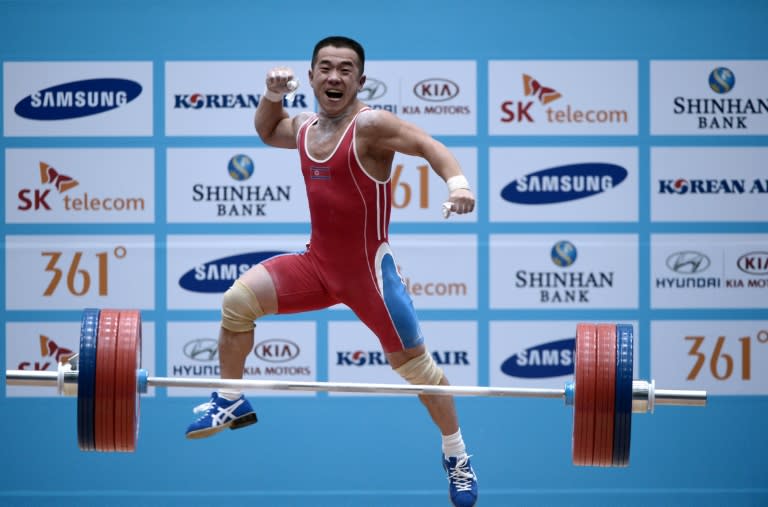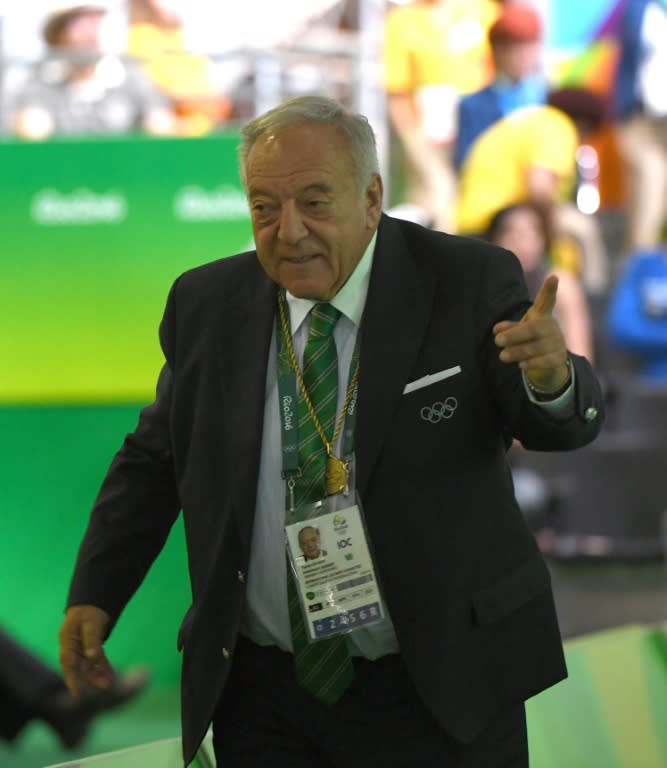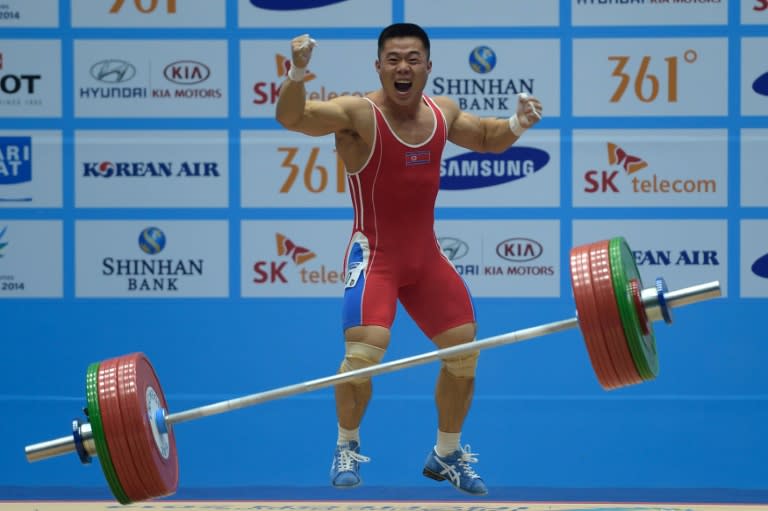Tarnished weightlifting fights for Olympic survival at Asian Games
Doping-ravaged weightlifting begins its Asian Games competition on Monday without a banned traditional powerhouse and with the sport's boss warning it would "slowly disappear" if it were to lose its Olympic status. No fewer than 12 world records were broken at an explosive 2014 Asiad in Incheon but now the sport needs to prove it can comply with world anti-doping standards to lift the threat of Olympic expulsion. China dominated four years ago with seven golds, five silvers and two bronzes, but none of their lifters will be in Jakarta. They are among nine nations currently serving a 12-month International Weightlifting Federation (IWF) ban after their reanalysed drugs tests from the 2008 and 2012 Olympics returned at least three positives. Kazakhstan, who were prominent with one gold and three silvers in 2014, are another of the nine banned, while Malaysia have pulled their team because of their own poor doping record. North Korea have seen three of their four gold-medal winners from Incheon 2014 subsequently banned for failed drugs tests, but remain favourites to top the medal count in China's absence. - 'Don't use anything' - Weightlifting is assured of its place at the Tokyo 2020 Olympic Games but the drugs-tarnished sport is attempting a cultural change to prevent it being dropped from the programme for Paris 2024. IWF president Tamas Ajan issued a stern warning last month that the sport would fall off the map if it were to lose its Olympic status. The IWF delivered a report in June detailing how it had met anti-doping requirements demanded by the International Olympic Committee (IOC). However, the IOC decided to leave to sport on probation until after the Asian Games and November's World Championships. "I have a question: what will happen with weightlifting if it is not on the (Olympic) programme?" the Romanian-born Hungarian Ajan asked delegates at the IWF congress in Tashkent last month. "I don't give the answer because you know it: weightlifting will slowly disappear." Ajan appealed to delegates to ensure their nations remained squeaky clean, with the IOC due to discuss the matter again at its executive meeting in Tokyo from November 30 to December 2. "Please cut out everything that leads them to bringing their anabolic steroids, their growth hormones or any other things," implored Ajan, according to website insidethegames.com. "Don't use anything." Meanwhile North Korea will try to shake off their own poor doping record to dominate the Jakarta weightlifting medals. The competition sees eight men's and seven women's weight divisions with the combined weight for the two lifting disciplines -- snatch and clean and jerk -- deciding the placings. - Pocket rocket - North Korea are sending six men and six women led by pocket rocket Om Yun Chol. The 2012 Olympic champions Om is just 1.51 metres (4ft 11in) tall and broke his own men's 56kg world record to win gold in Incheon four years ago, sparking exuberant celebrations. But the secretive nation's other three gold medallists from Incheon are in disgrace. Women's 75kg winner Kim Un Ju was banned for two years for steroids just three months after her Incheon trumph. Her 58kg compatriot and fellow gold medallist Jong Hwa Ri tested positive for anti-asthma drug clenbuterol. Kim Un Guk, the men's 62kg winner, failed a test for letrozole in 2015 and is banned until December next year. Silver medallists Kim Kwan-Song (men 77kg), Ryo Un-Hui (women 69kg) are also serving four-year doping bans. Iran are likely to sweep the men's heavier classes with world-record holders Kianoush Rostami (85kg) and Sohrab Moradi (94kg), and former superheavyweight (+105kg) world record holder Behdad Salimkordasiabi all entered.




